National Prosperity through Growing the Economy Click here to download pdf file. http://www.pngruralsociety.org/wp-content/uploads/2024/02/MTDP-IV-2023-2027_compressed.pdf
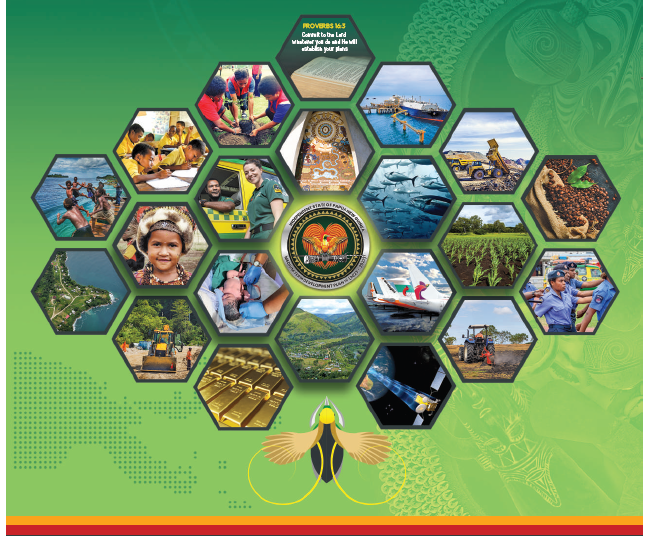
National Prosperity through Growing the Economy Click here to download pdf file. http://www.pngruralsociety.org/wp-content/uploads/2024/02/MTDP-IV-2023-2027_compressed.pdf

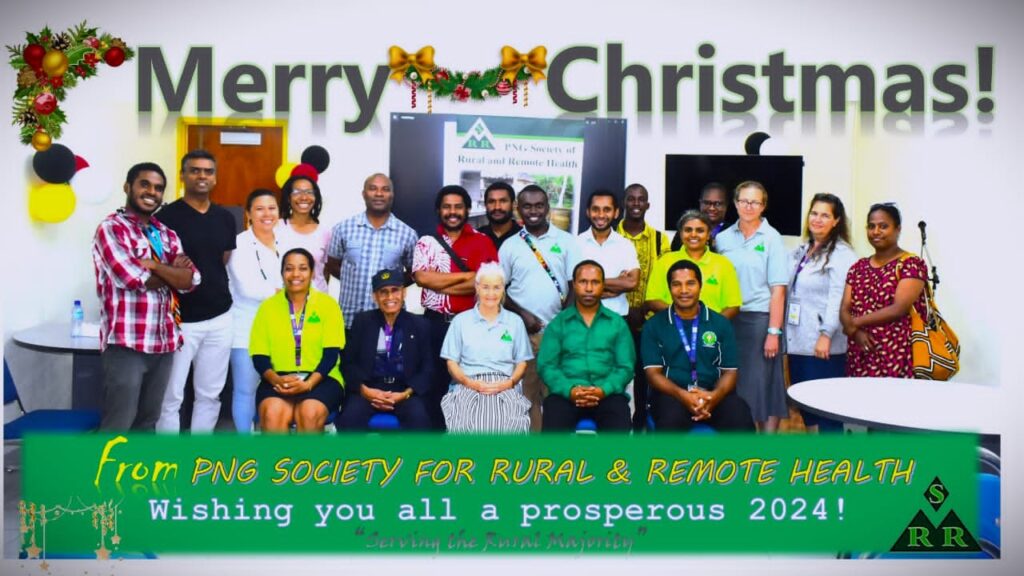
Join Dr Yohang as he reviews the good, not so good and areas we can do better in our UPNG Rural Placement Programs. Are we making the impact we are hoping for? Is there lasting change?
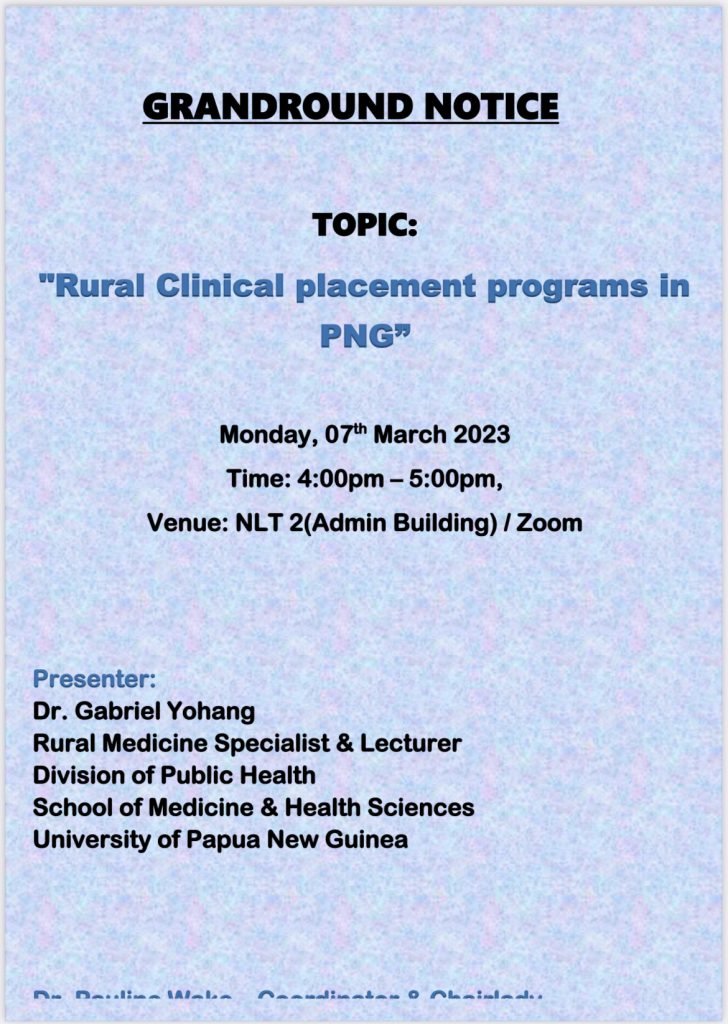
Join via Zoom:
Meeting ID: 986 4187 5606
Passcode: 680192
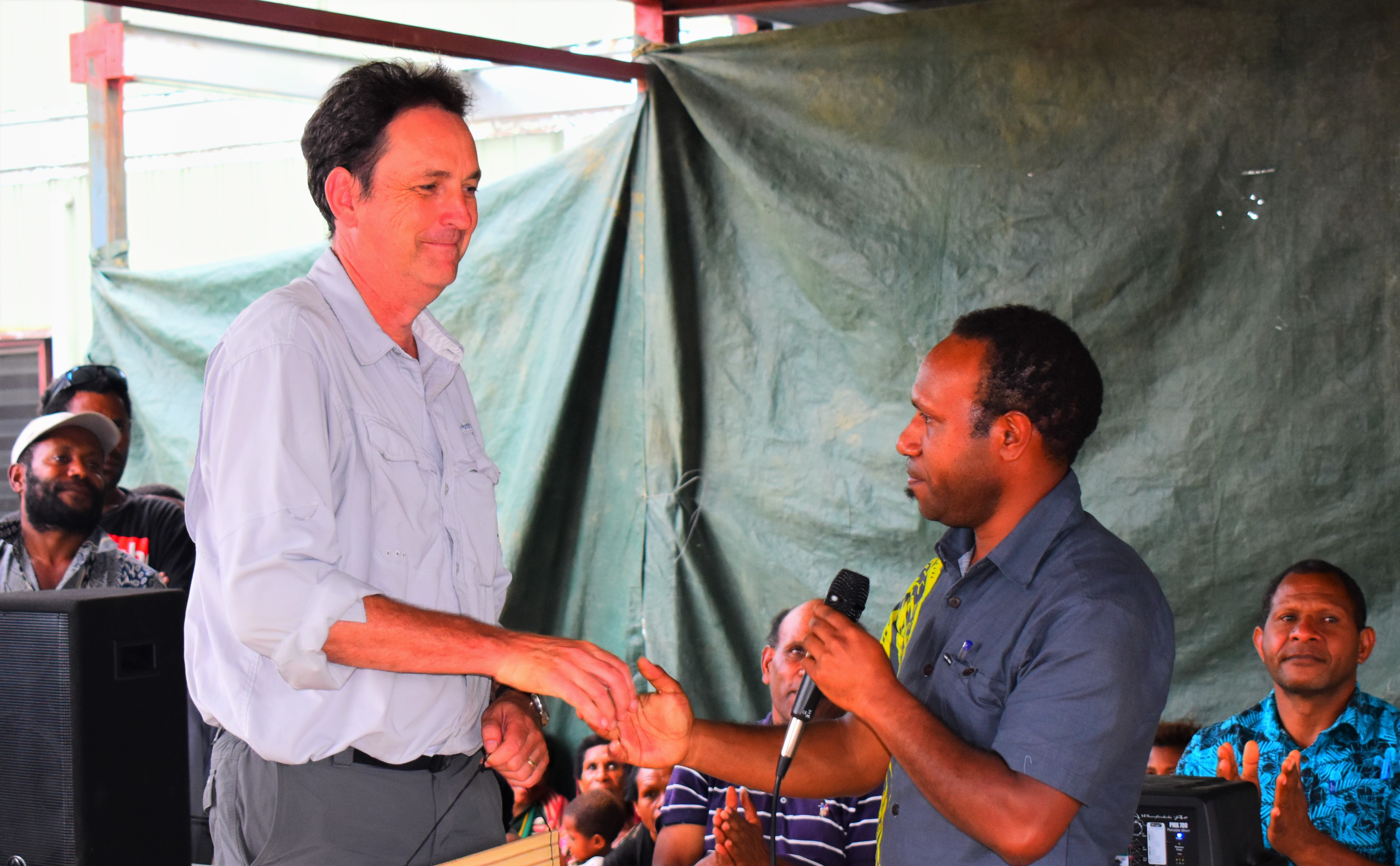
Recognising the immense contribution of Dr David Mills, the founder of the PNG Society for Rural and Remote Health as well the instigator plus engineer of the Masters in Rural Medicine (UPNG) program.
As many gathered to farewell the Mills family at Kompiam on Saturday 26th November our present president reflects the following:
Jimi district in Jiwaka province is one of the most remote in Papua New Guinea. I travelled to Middle and Upper Jimi on my way to Kompiam this weekend and experienced firsthand the struggles of accessibility that the people of Jimi have when it comes to accessing primary medical services.
Jimi district represents the many rural and remote (and some isolated) places in Papua New Guinea where accessing primary medical care is limited by poor road access; where winding and narrow is the path to accessing a doctor; where pastures of medical care is brown. The government of Papua New Guinea has tried various approaches to solving this issue but all seemed to be superficial, symptomatic and reactive solutions.
There needed to be a change of approach – a paradigm shift. A systemic approach that foster unity of influence; a systematic approach that ensure uniformity amongst diversity; a synergistic approach that bonds vital parts for a better whole. A shift from reactive to proactive. If the people are unable to access a doctor, then let us enable the doctor to access the people.
God’s will to improve rural medical health in Papua New Guinea was instilled as a vision in David Mills and his family. With grits, guts and grind, but most importantly God, the family relocated from Australia, the land down under, to Kompiam District in Enga Province, a land out further. They came as missionaries, and visionaries, carrying seeds of change from God that will transform rural medical service in Papua New Guinea.
One seed was planted in the fertile soils of Kompiam Health Center. Out sprouted the now blossoming tree of Kompiam District Hospital, which is one of the best rural hospitals in Papua New Guinea. A second seed was planted still at Kompiam, where it now is blooming as Kompiam International School, providing quality education in a rural district.
The next seed was planted at the University of Papua New Guinea (UPNG). This was a very special seed – unique in the world and found only in Papua New Guinea. It germinated with struggle but was nurtured passionately till it bloomed into a specialist training program, which has yielded seven master of medicine specialists, specialising in rural health. As it branched further, the Department of Rural & General Medicine took emerged and is now an important department in the UPNG School of Medicine.
Another seed was planted in Papua New Guinea as the PNG Society for Rural and Remote Health. It too struggled to grow but did so eventually and is now a place for rural doctors to ‘feel at home’.
These seeds are actually smart strategies to obtain, maintain and retain doctors in the rural areas. Sure enough, we have a Department that attracts medical students into rural medicine; a graduate level Curriculum that keeps rural registrars in rural hospitals; and a professional Society that keeps the rural doctors connected.
If we are a Society of painters, we would paint a thousand pictures to speak ten thousand words of gratitude to the Mills for their passion, dedication and perseverance in improving rural medical services. They heeded to the call of God and allowed the Holy Spirit to use them to initiate, influence and impact a paradigm shift. Rural medical services is a better version now!
Prosperity is when your life becomes a blessing and healing to others. The Mills have lived a life of prosperity and we wish them more prosperous times ahead and abroad.
On behalf of a grateful Society, and a grateful nation.
Dr. Hogande Kiafuli
President – PNG Society for Rural and Remote Health.
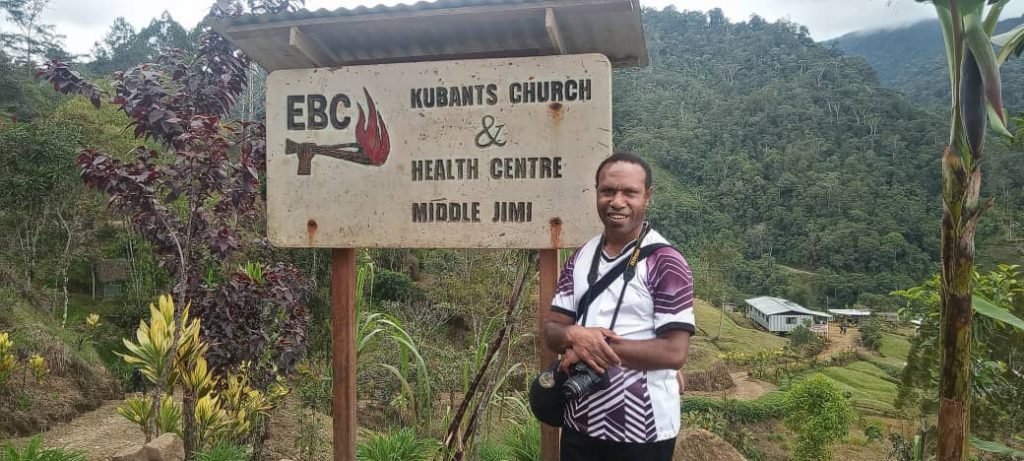
Situated in luscious Pomio District of East New Britain province the 28 bed Warangoi Rural Hospital has been undergoing some exciting changes for the better this year.
July 2022 saw Warangoi Rural Hospital take on their first 5th year medical students from the University of Papua New Guinea for their rural attachment. Since Dr Micah Misivet began working at Warangoi Rural Hospital in 2020 he had been keen to have medical students and resident medical officers do training rotations at the hospital. However, due to housing constraints it had been a struggle until recently when suitable accommodation was arranged in the local community and Warangoi saw the arrival of his first set of students. Dr Misivet was excited to have his first set of students whose presence he felt “It (would) really enhance myself and my staff academically” as having the students required guidance and teaching from them each day of their 6 week stay.
Dr Micah Misivet is the sole doctor at Warangoi Rural Hospital and with the help of his in hospital staff, 3 of his 5 functioning aid posts and health patrols, they provide healthcare to the approximately 14,686 people who reside in the 8 wards of the hospital’s catchment.
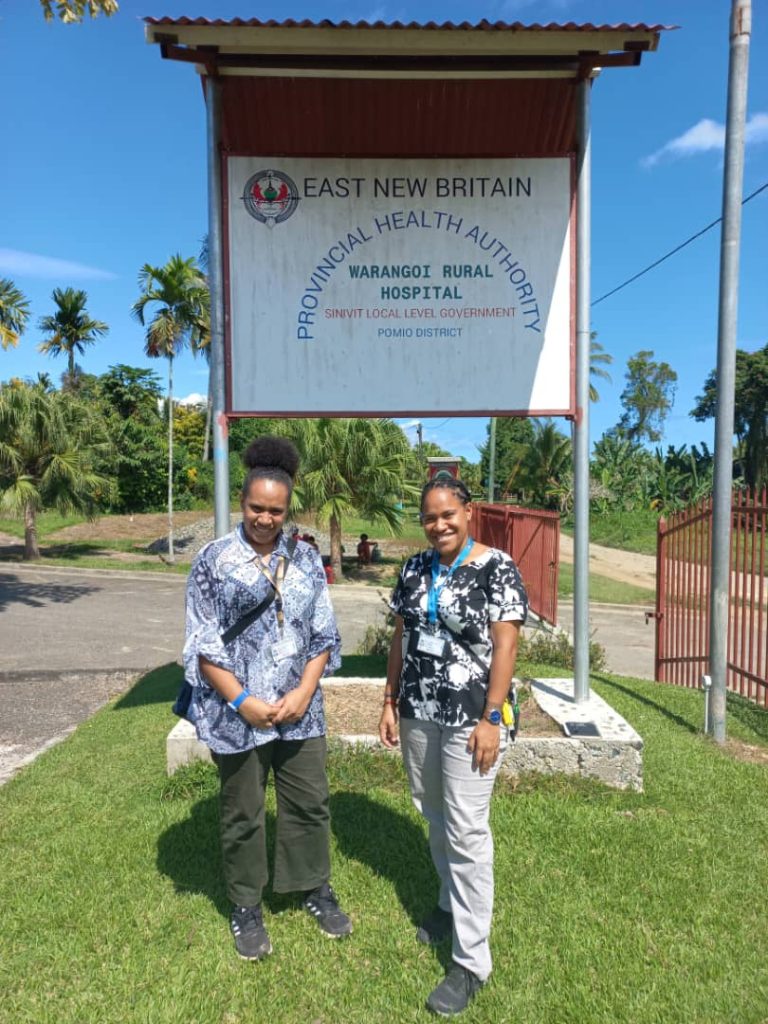
A few days after the arrival of the students the internet wifi by Light Speed was installed at the hospital. Dr Misivet is a MMed Rural Medicine (UPNG) trainee. Part of the MMed Rural Medicine program’s initiative is to equip their trainees with effective, quality telecommunications capabilities to allow them to access virtual continued medical education workshops, tutorials and other online learning facilities as well as allow them to network and communicate with other fellow colleagues as rural practice can often be very isolating experience.
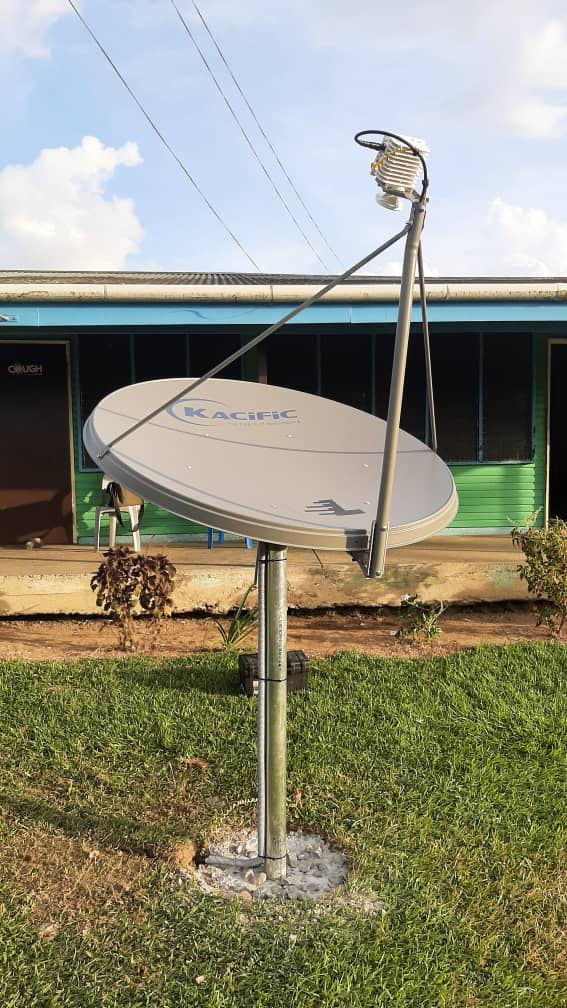
This new satellite set up came on the brink of the PNG Rural and Remote Health Society commencing its inaugural monthly virtual CME conferences. As a result Dr Misivet and his students were able to join that CME conference discussing Anaesthesia in the Bush.
Many of the rural or district hospitals across the country do not have reliable telecommunication services available to them. The installation of the Light Speed satellite has dramatically improved the telecommunication capabilities of Warangoi Rural Hospital. Now communication for referral of patients is more reliable and a WhatsApp referral group has been created between Warangoi Rural Hospital and the medical officers and SMOs of Vunapope Hospital and Nonga Hospital adding to this convenience. Dr Misivet uses the new wifi for internal CME conferences for all staff at the hospital as well as attending external CMEs being hosted by the UPNG and the PNGSRRH.
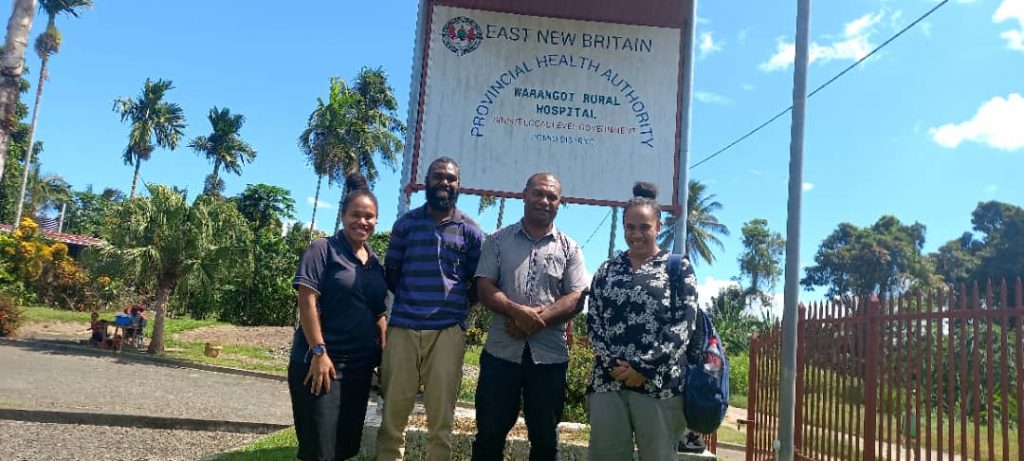
Later in August saw Dr Yohang, Head of Rural and Generalist Medicine, drop by Warangoi during his East New Britain supervisory visit of Vunapope, Warangoi and Palmalmal hospitals.
As the new department of Rural and Generalist Medicine of the School of Medicine and Health Science (UPNG) establishes itself, integral to its development is ensuring its trainees – medical students, resident medical officers and MMed registrars – are well supported to achieve their training objectives. Dr Yohang’s visit was a welcome encouragement to the trainees and their respective hospitals.
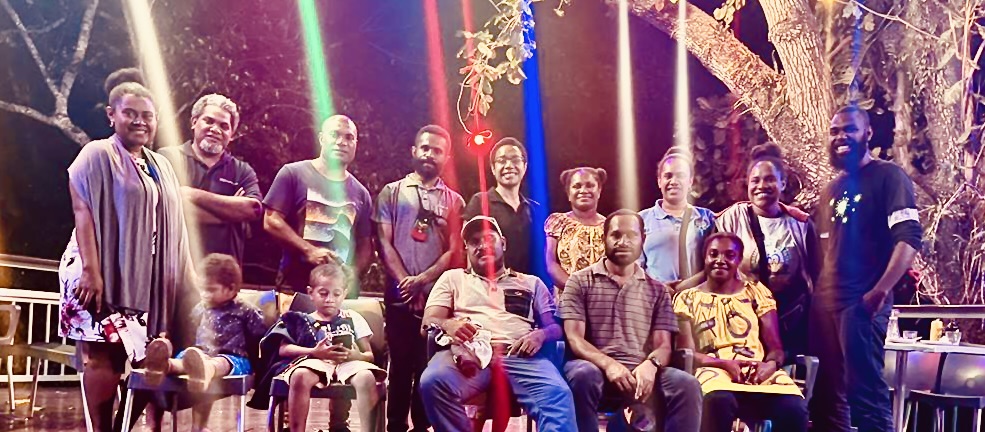
This years meetings of the PNG Society for Rural and Remote Health are being devoted to the issue of “Encouraging and Supporting Careers in Rural Health”.
Download the program here. Program 2015
Given the media coverage and social media debate this year on this important topic, we decided to make it the theme of our entire meeting.
We will be having a series of speakers, from Secretary of NDOH, Pascoe Kase, Deans of both SMHS (UPNG) and Divine Word University’s Faculty of Health Sciences, CEO’s of WHP and Milne Bay PHA’s (James Kintwa and Billy Naidi) , Professor Glen Mola (discussing the residency program), as well as current serving rural doctors, residents and medical students.
The aim is to get as wide a perspective as possible on this critical issue, and aim to make resolutions that can give us a roadmap for the way forward.
There is a strong feeling that something needs to be done NOW, before our medical culture becomes ossified into an urbanized, privileged clique that is not only unable to help the rural majority, but culturally unqualified to do so.
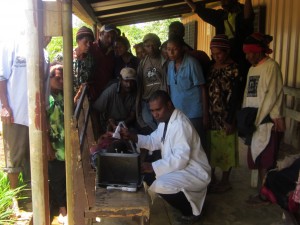
The PNG Society for Rural and Remote Health will be holding its meetings on Friday Sept 4th at Holiday Inn (Ballroom 2 and 3) and on Saturday Sept 5th at SMHS (UPNG), New Lecture Theatre 2.
Registration is not required to attend the Society meetings only (but is required to attend the preceding symposium). Food is complimentary.
Get along and have your input. We expect it to be a vigorous discussion!
“Doctors Short!” Stating the obvious perhaps, but this was the screaming front page of the Post Courier on May 25th.
Reviewing the current status of the medical workforce outside NCD, 49 of the 88 districts had no full time doctor present. This represented a population (using 2011 census data) of over 3.24 million people without access to medical care.
Given the fact that doctors based in provincial centres are for the most part not covering populations outside the LLG in which they reside, it is certain that a LLG by LLG breakdown of this data will give an even greater sense of urgency to the crisis.
This years Annual Medical Symposium, to be held at the Caritas Hall, East Boroko in Pt Moresby promises to see the debate on rural doctors pressed further.
At Tuesday lunch, a formal debate will be held on the resolution “Training doctors to work in rural areas is likely to make NO significant difference to the health of rural Papua New Guineans.”
So far as we know, its the first time a debate has ever been conducted at the Symposium and comes at a time when the discussion has been hot in the media. Headlines such as “Rich Doctors” (refusing to go and work rural) has seen plenty of passionate comments exchanged on social media platforms.
There will be 8 debaters; For the Affirmative Team – Dr Trevor Kelebi (Rural Specialist, Sandaun PHA), Dr James Naipao (National Doctors Association), Dr Athanasius Kari (MMED Rural 2nd year and Med Super at Raihu Hospital), and media personality Scott Waide from EMTV news.
For the Opposing team we have Dr Magdelene Taune (MMED Rural year 6 from Mingende Hospital), Dr Nora Dai (Womens Doctors Association), Prof Glen Mola (needs little introduction to all doctors in PNG), and Dr Kapua Kapua (final year resident – representing the undergraduate trainees.)
It promises to be a very lively event and hopefully will continue to stoke the discussion about the inequities in health care in PNG.
The last 2 years as seen the School of Medicine and Health Sciences at UPNG revive its rural exposure for final year students.
During the 1970’s PNG had a rural health program for medical undergrads that was world leading, but unfortunately this was allowed to slide. However with assistance from the Australian Govt through its HECS program, the School has now invested in this important 8 week rotation. Students are being flown all over the country to rural hospitals, often partnering with MMED (Rural) grads or registrars.
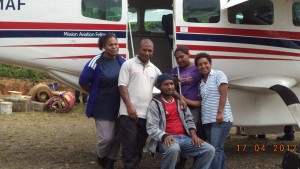
The result has been a tangible excitement amongst the 5th years for their upcoming “rural block”. Currently students are being sent to Mingende (Simbu), Kompiam (Enga), Raihu (Aitape, Sandaun), Veifa (Central), and more recently to Vunapope in ENB. We are looking to expand the number of hospitals being used, so contact the Society if your hospital may be interested in hosting 5th years.
The 9th of April 2014 was a major landmark in the journey of rural health services for PNG, when Drs Trevor Kelebi, Gabriel Yohang and Felix Diaku, became the country’s first graduates of the MMED (Rural) program.
After 7 years of arduous post graduate training (all done while holding down full time Medical Superintendent jobs at their respective rural hospitals), they successfully completed their Part 2 exams in October. With completion of their last assignments and research project, and it was all finally done.
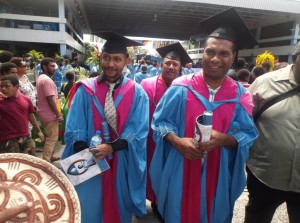
For those of us cheering them along the way, the graduation of these three young men represents a new beginning – with more coming through the program and with interest steadily growing, we are very hopeful that we will see a renaissance in interest in Rural Medicine amongst the medical fraternity, as these graduates increasingly become the advocates for change.